
We all know of the old Welsh proverb, “An apple a day keeps the doctor away," but do we understand the reasons that make this fruit so special? What are the health benefits associated with eating apples?
Read on to find out!
There are over 7,500 varieties of apples, and they come in a variety of colors, namely red, yellow, and green. The skin of apples is thin but sturdy, and the inner flesh is thick and juicy, and it softens as it ripens. The inner core holds the seeds, which are dangerous for your health. The nutrients are in the flesh and the skin, which are rich sources of anthocyanins and tannins. It’s indeed true when they say, “An apple a day keeps the doctor away!”
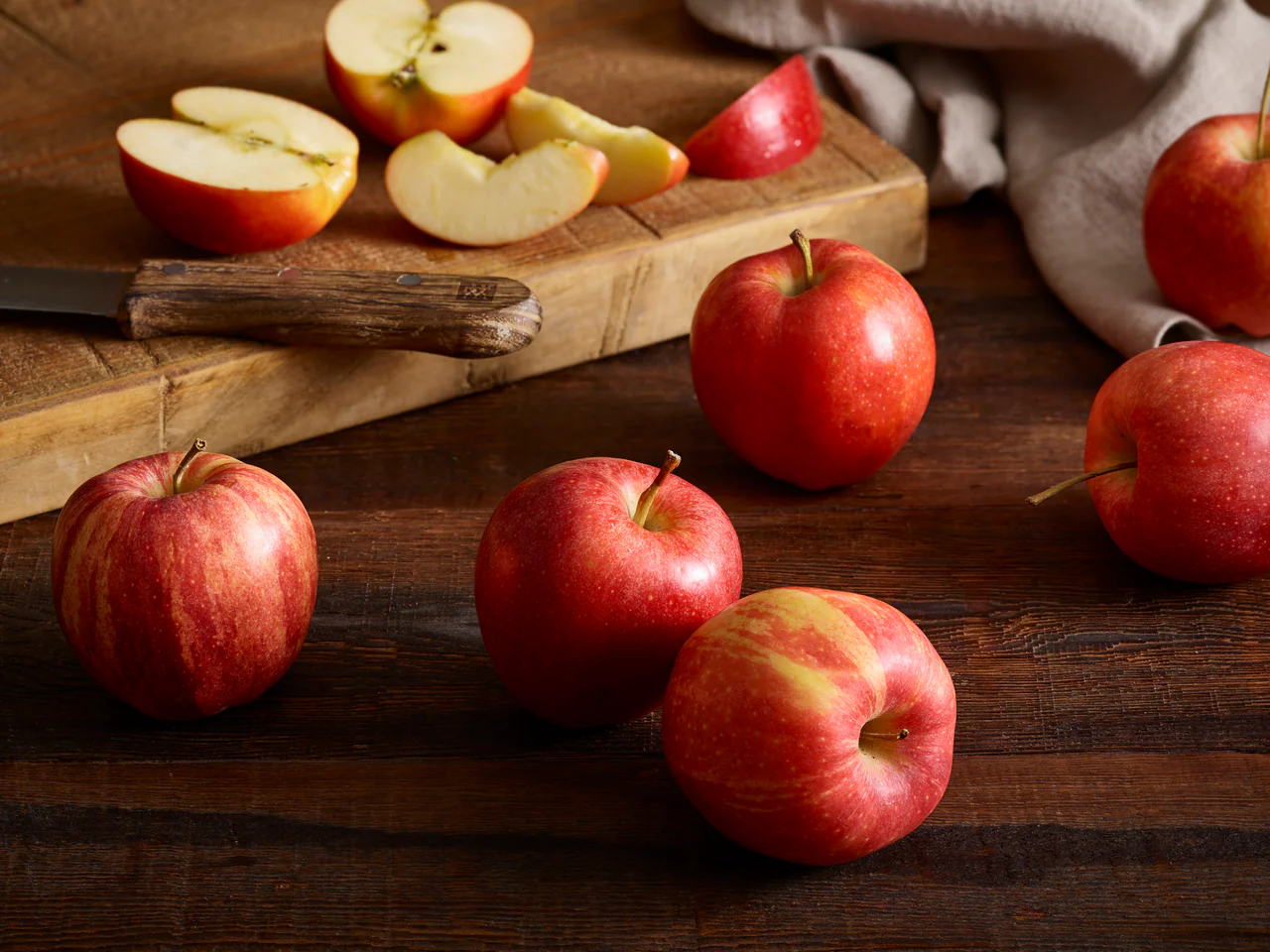
The health benefits of apples include the prevention of Alzheimer’s and Parkinson’s diseases, heart, stomach, and liver disorders, gallstones, constipation, anemia, and diabetes. They also lower your risk of suffering from rheumatism, eye disorders, a variety of cancers, and gout.
The long list of health benefits attributed to apples is due to the vitamins, minerals, nutrients, and organic compounds found in them. These important nutritional elements include vitamin C, vitamin K, vitamin B6, and riboflavin. The list also includes minerals like potassium, copper, manganese, and magnesium. Apples are very good sources of dietary fiber and are packed with phytonutrients and flavonoids like quercetin, epicatechin, phlorizin, and other polyphenolic compounds.
– Pomology is the science of growing apples.
– Two-thirds of the fiber and lots of antioxidants in apples are found in the peel.
– Apple seeds contain cyanide.
– The average apple contains 10 seeds.
Apart from the fruit, the oil extracted from its seeds is also useful and has many applications, especially in the cosmetic industry. The benefits of apple seed oil come from its impressive mineral and protein content and include reducing the appearance of acne, reducing wrinkles, and moisturizing the skin.
This oil also helps in preventing skin cancer, boosting skin elasticity, preventing sun damage, and stimulating the production of collagen to produce new, healthy skin cells. It should not be consumed orally, but it can be used for topical applications.
Sweet and juicy apples are fermented for two days to make spiced probiotic apples. This fermenting process preserves the food and creates beneficial enzymes, B-vitamins, Omega-3 fatty acids, and various strains of probiotic microorganisms. Fermented, probiotic foods cleanse the digestive tract and remove toxins from your body. They also help your body absorb nutrients.
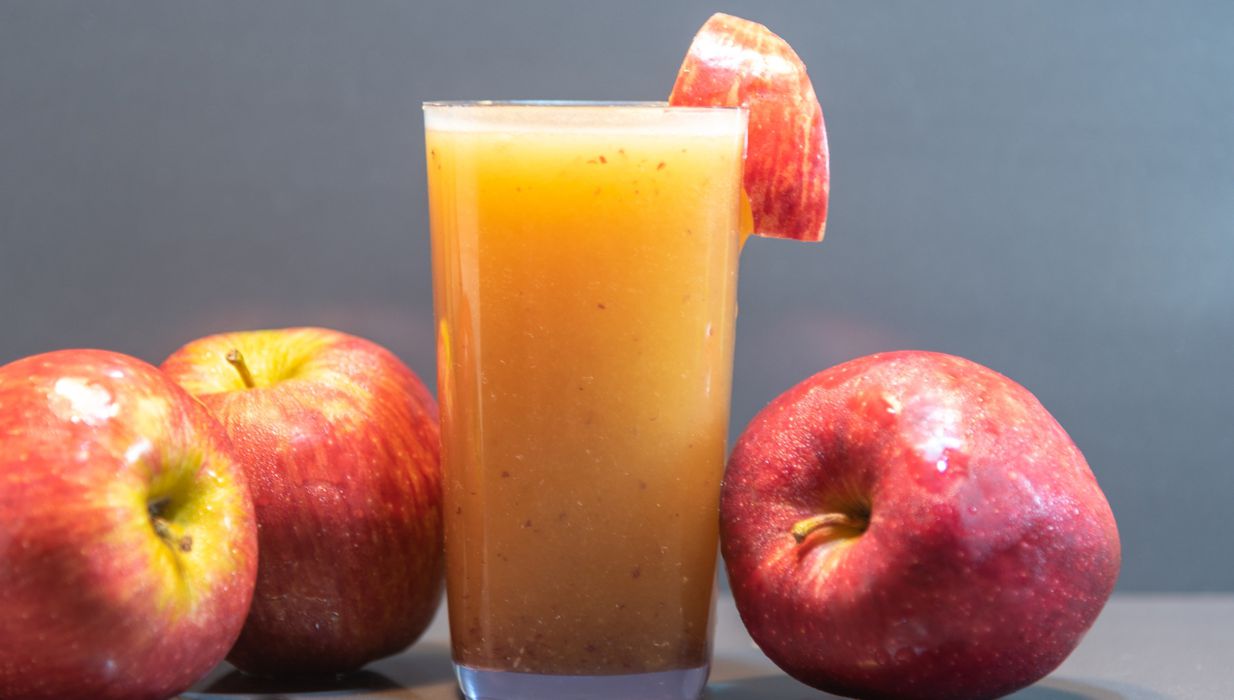
Apples are extremely versatile fruits that can be eaten alone or used as an ingredient in several recipes. The skin of an apple contains unusual amounts of nutrients, and so it should be eaten with its skin on. Even if you are using apples in a recipe, it is advisable to use them unpeeled to reap the amazing benefits of apple nutrients. But before using the apple, make sure to scrub its skin gently with a natural bristle brush for 10 to 15 minutes to remove the pest-proof coating of wax.
Health Benefits of Apples that Help You Keep the Doctor Away
Improves Heart Health
Quercetin, a flavonoid found in apples, is associated with reducing inflammation, particularly in the cardiovascular system, and improving immunity. Quercetin has also been used to help reduce allergies, and in vitro studies show it slows the growth of some kinds of cancer.

Manages Diabetes
Blood sugar control is essential for people who suffer from diabetes, and the polyphenols in apples have been directly linked to reducing the uptake of carbohydrates by the body. This, in turn, reduces the fluctuation of blood sugar levels that occur in the bloodstream, an important factor for keeping diabetes in check.
_1729527917.jpg)
The polyphenols also lower glucose absorption in our digestive tract and stimulate the release of insulin from our pancreas, which is also necessary to keep blood sugar levels in check. Finally, polyphenols stimulate the insulin receptors in cells throughout our body, which speeds up the removal of sugar from our bloodstream and gets it to our cells for metabolism and proper organ function.
Promotes Digestion
Apples, being rich in fiber, help in the digestive process. Regular consumption of apples ensures smooth bowel movements and the prevention of constipation and stomach disorders. Fiber is an important part of any diet. It adds bulk to the stool and helps food pass through the digestive tract smoothly.
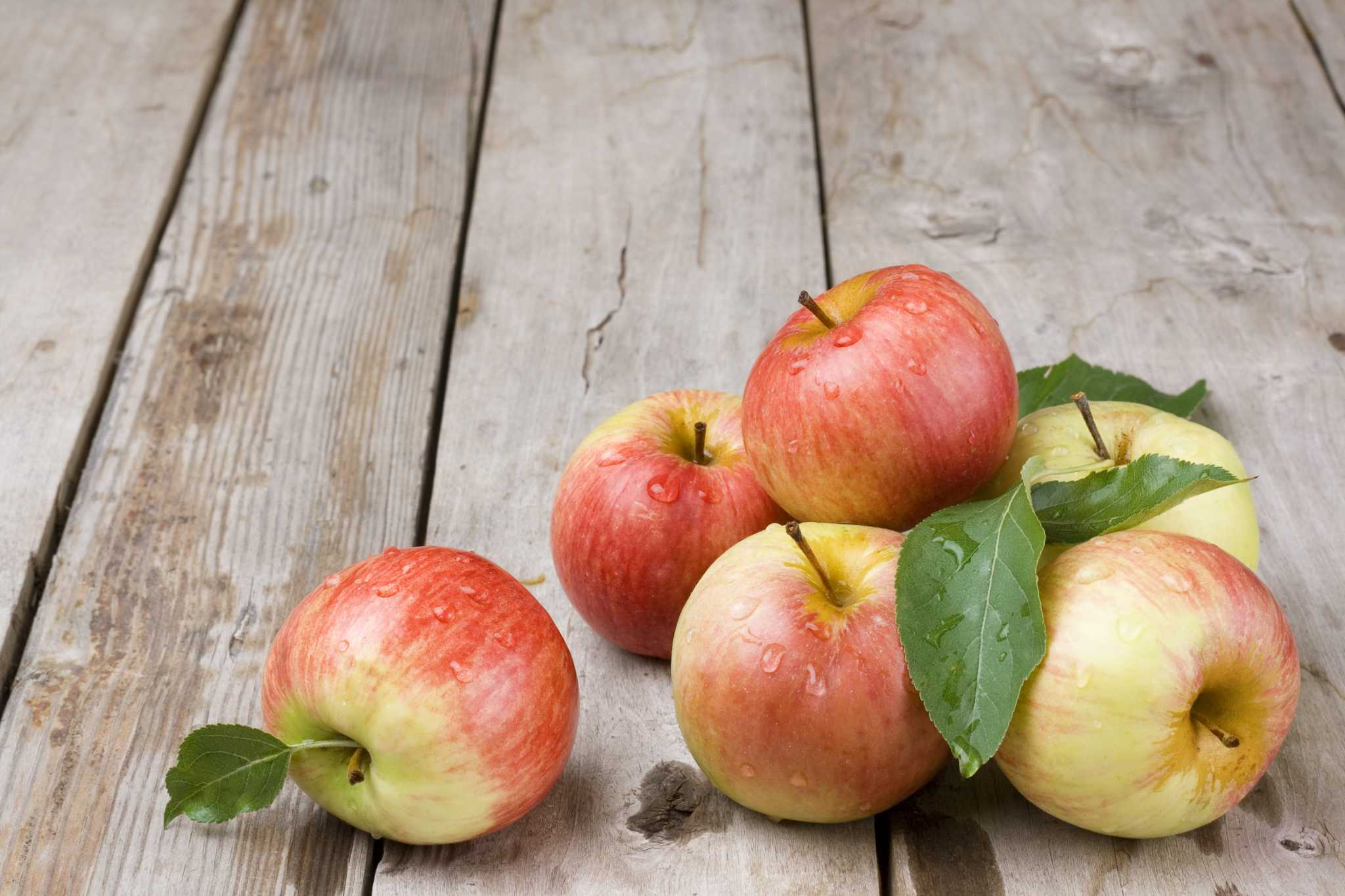
Furthermore, it stimulates peristaltic motion, so the muscles contract appropriately and move food along. Finally, it stimulates the release of gastric and digestive juices to ensure efficient uptake of nutrients while simultaneously scraping excess cholesterol out of your veins and arteries to ensure proper heart health and reduce the chances of atherosclerosis.
Promotes Weight Loss
Chlorogenic acid found in apples has strong antioxidant and anti-inflammatory properties. This phenolic acid can help with weight loss by improving glucose tolerance and reducing fat storage.
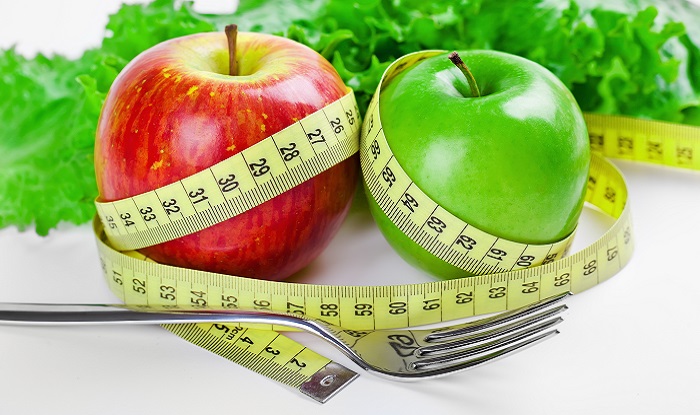
Stimulates Hair Growth
Procyanidin B2, a flavonoid, of which apples are the richest source, appears to have a special effect on your hair and how fast it grows. Procyanidin B2 is said to stimulate hair growth by activating the anagen (growth) phase of the hair follicle and decreasing the time that follicles remain dormant.
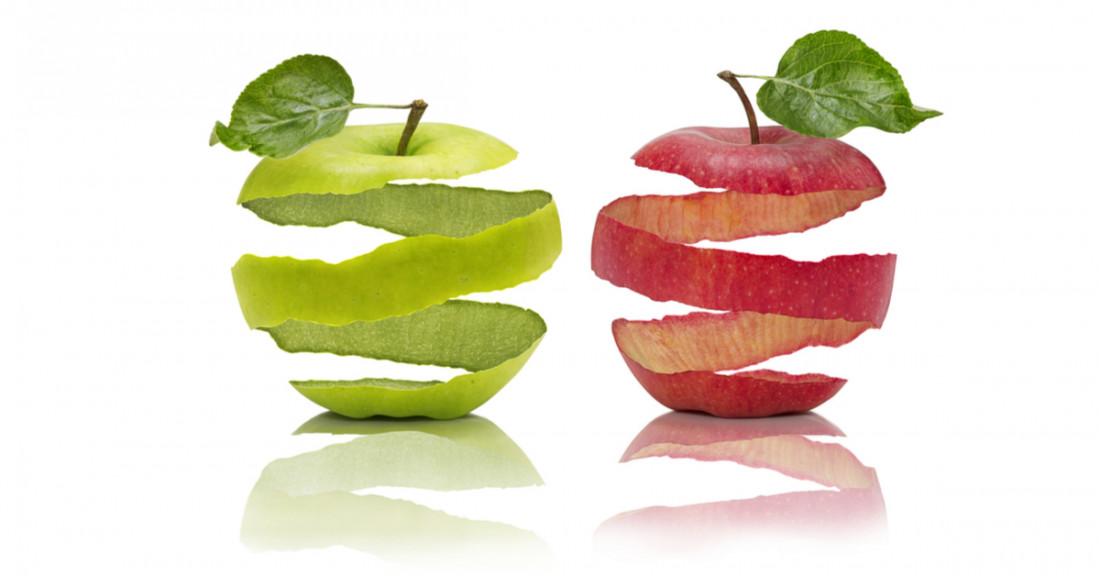
Prevents Anemia
Apples are beneficial for anemia patients since they are a rich source of iron. Anemia is a deficiency of hemoglobin in the blood, which can be considerably managed by increasing your intake of iron. Iron is an integral part of red blood cells. By increasing the number of red blood cells in the body, you not only prevent anemia but also ensure a proper oxygen supply to essential organ systems to keep them functioning properly.
How can you include Apples in your Diet?
There are many ways to include apples in your diet. Some of our favorite ways are listed below.
- Fresh apple juice is one of the simplest recipes. The fruit pairs well with cucumber, watermelon, and carrot.
- Baked apple is another simple recipe—remove the cores only halfway to the bottom of the fruit. Fill the hole with a combination of cinnamon, sugar, a pinch of cardamom, raisins, walnuts, or almonds. Add a small amount of water to the bottom of the pan and bake at 200ºC for 15 minutes, and they are ready to eat.
- Salads: Apple chunks go well in recipes with beets, carrots, and walnuts.
- Chip substitute: Apple slices are a surprisingly pleasant chip substitute, on par with carrot slices and cucumbers. The crisp sweetness of pink apples makes them an especially delicious choice.
- Applesauce, pie, muffins, cakes, cupcakes, and tarts are also very famous.

Processing apples, such as boiling or extracting apple juices, often results in the loss of polyphenols or other nutrients. Hence, the consumption of raw apples is the best option to obtain all the nutrients.
Don’t let these side effects scare you off apples! These red-colored fruits should definitely be a part of your daily diet. The only thing you need to be careful about is the number of apples you are eating. Like most things in life, moderation is the key to happiness and fulfillment!
Disclaimer: Like many other fruits, apples have a high content of fructose. Unlike glucose, which is absorbed into all body cells for energy, fructose is only used in the liver. When in the liver, it produces fats called triglycerides, which can lead to heart diseases. Excess consumption of apples can also lead to excess fructose in the body, which can cause several health problems like diabetes and obesity.
Nutrition Information
100g of apple provides 59 Calories, Carbs – 14g (Dietary Fiber – 2.3g, Sugar – 10g), Protein – 0.3g, Fat – 0.2g, Sodium – 1mg
And a percentage daily value of Vitamin A – 1%, Vitamin C – N/A%, Iron – 1%, and Calcium – 1% (based on a 2000-calorie diet).


.png)


